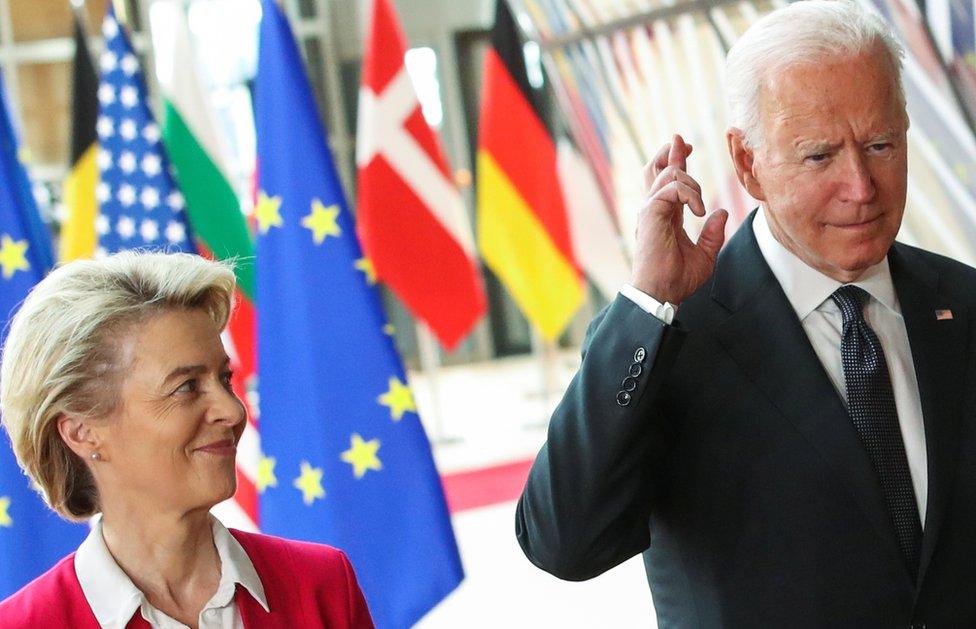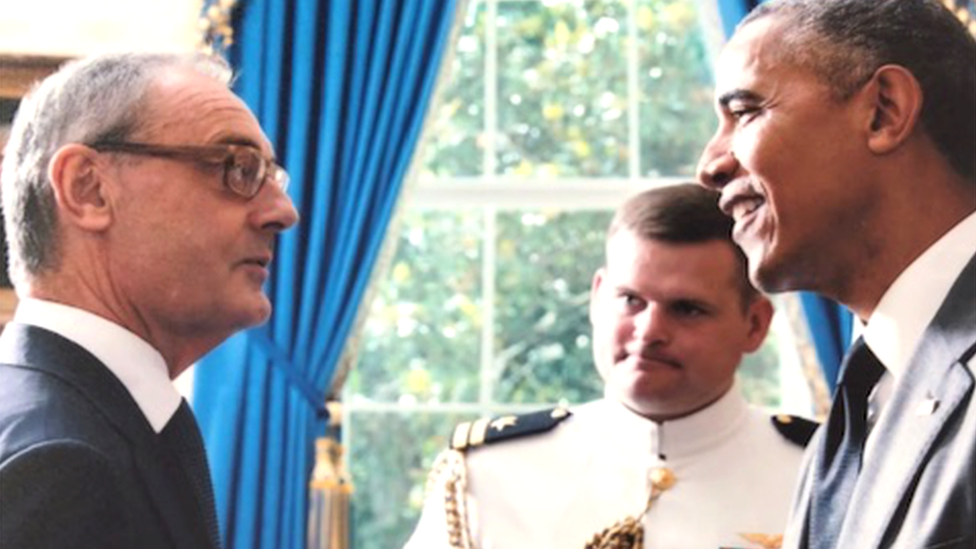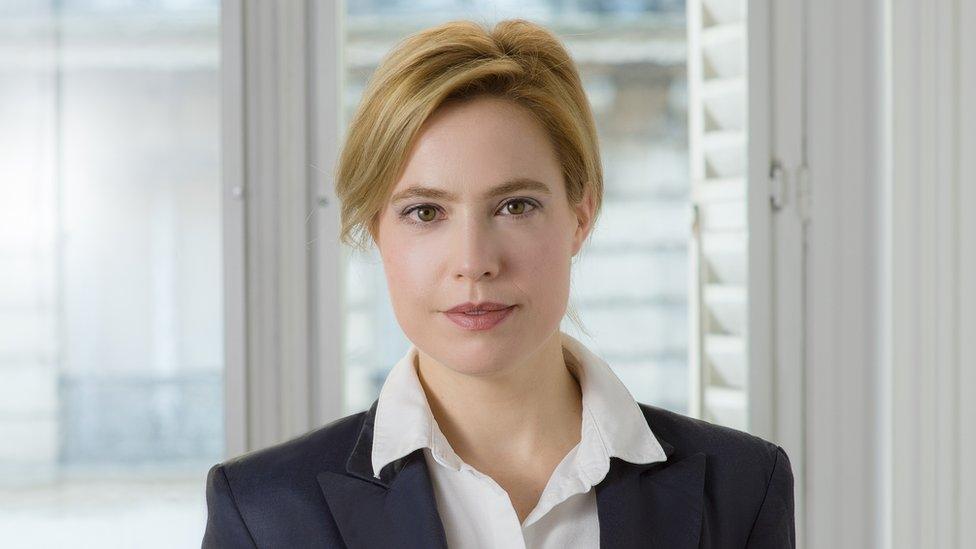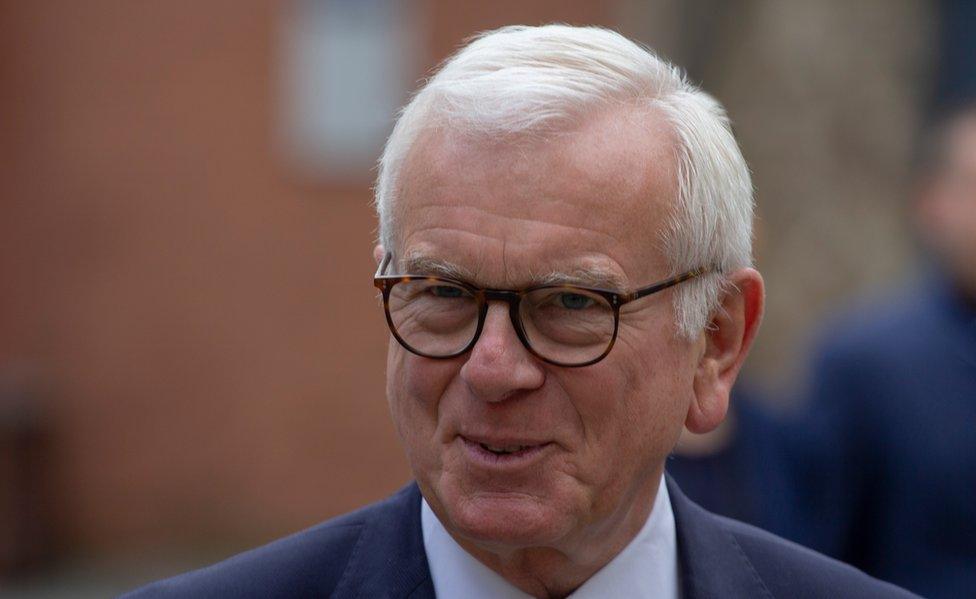Biden: How Europeans have reacted to president's visit
- Published

If it's Tuesday, this must be Brussels: President Biden with European Commission President Ursula von der Leyen
Joe Biden meets Russia's Vladimir Putin on Wednesday, fresh from days of talks with European leaders on his first visit to the continent as US president.
Mr Biden has met leaders at the G7 in Cornwall, then at Nato and EU headquarters in Brussels. So what impression has he made? Here, three prominent Europeans give their assessments:
Europe back at heart of US global policy
By David O'Sullivan, EU ambassador to the US (2014-19)

David O'Sullivan was EU ambassador first under President Barack Obama and then under President Donald Trump
What lessons have Europeans learned from Biden's trip?
President Biden has reaffirmed America's traditional support for the European Union as an important partner in global affairs.
Tuesday's EU-US summit declaration announces a series of joint actions, external, ranging from the response to the pandemic and action in the fight against climate change to strengthened co-operation on trade, investment and technology. There's also a firm commitment to defend democracy and human rights.
There is even a breakthrough agreement on greater joint work and co-operation in the area of security and defence, previously an almost taboo subject.
A series of working groups and a new Trade and Technology Council will ensure that, in the coming months, the co-ordination is intensified across the full range of these issues. Europe, and specifically the EU, is back at the centre of US global policy.
Has Biden's visit improved security in Europe?
President Biden's very strong reassertion of America's support for Nato and, in particular, Article 5, represents an important return to the American leadership of the past and a big reassurance for European security. [Article 5 commits members to defend each other from attack].
How does this trip compare with those of Biden's predecessors?
The entire choreography of his visit to Europe was designed to show his strong commitment to the transatlantic relationship, the value he places on allies and alliances, such as Nato, the G7 and the EU, and a heartfelt commitment to multilateralism.
The contrast with the Trump years could hardly be more marked but, arguably, demonstrates a stronger engagement with Europe than even that of President Barack Obama. The breakthrough on the long-running Airbus-Boeing dispute shows that this is not just about rhetoric but also about delivery.

Biden expects Nato and EU to deliver
By Alexandra de Hoop Scheffer (Head of German Marshall Fund in Paris, ex-French foreign ministry adviser on US)

What lessons have Europeans learned from Biden's trip?
Europeans have clearly understood that when President Biden says "America is back", he really means it. He showed that US leadership, despite the Trump years, still has the unparalleled power of rallying partners around common issues and responses, especially on the "3Cs" of his agenda: Covid, climate and China.
Has Biden's visit improved security in Europe?
Mr Biden made clear that the US was recommitting to the transatlantic partnership, through Nato and the EU, and that he expects these two organisations to deliver on the global security challenges facing transatlantic partners. US recommitment to Article 5 of the Atlantic Charter is a very welcome sign of US recommitment to European security.
How does this trip compare with those of Biden's predecessors?
He has delivered very concrete results, which his predecessors did not manage to do. On China, both Nato and the EU are stepping up their narrative and actions against China, under US impulse.
He has also accepted several proposals made by the EU. On technological issues and cyber-security, which are a top priority for Mr Biden, he has agreed to establish the EU-US Trade and Technology Council, while asking Nato to step up its tech innovation policy and resilience against cyber attacks; on Russia, he also accepted an EU proposal to establish an EU-US high-level dialogue on Russia, which is a very constructive move from a European perspective.

A new spirit with the US
Hans-Gert Pöttering (Former President of the European Parliament)

What lessons have Europeans learned from Biden's trip?
Thanks to President Joe Biden, there is a new spirit between the US, Nato and the EU. Politics is to a great extent based on confidence and trust between political leaders.
Has Biden's visit improved security in Europe?
There is a new trust now in American politics. President Biden made it clear that Nato is based on values, and the US-EU relationship is as well. This attitude is most important because it is the basis for common action. In this sense, European security is stronger now.
But Europeans should not make a mistake. They should not think: "Now everything is OK." Europeans should use the Biden years to make Europe and the European Union stronger: remain transatlantic and become more European.
How does this trip compare with those of Biden's predecessors?
President Biden is a reliable partner and friend of the Europeans and he is aware of the importance of the European Union. This is the difference from his predecessor.
Three things to watch as Joe Biden faces Vladimir Putin